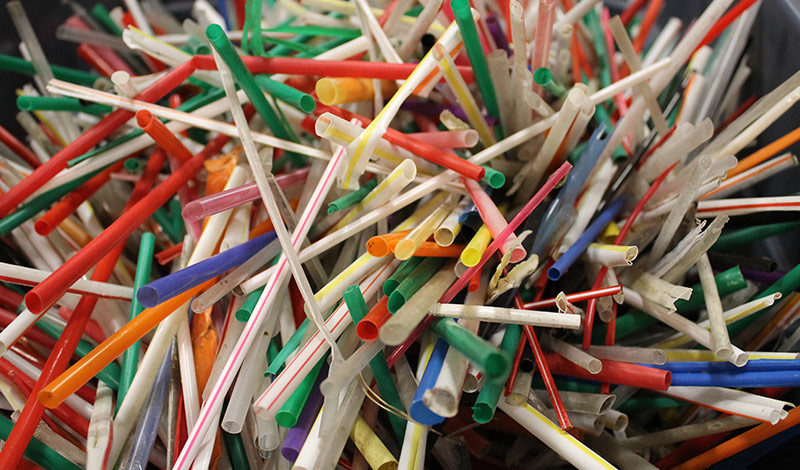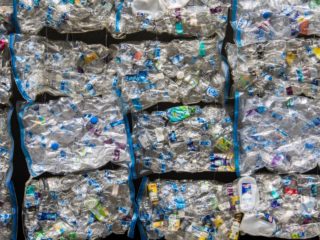A brief story to illustrate why plastic straws are a problem.
I was out at a restaurant recently and as my family made our way to our table, I ran into a friend sitting at the bar. She was there with a few friends, and while chatting with her I overheard the bartender ask one of them if he wanted a straw with his drink. The man replied that he did. At that point, a woman in the group gave the man a playful nudge and raised her eyebrows in mock horror. “You’d better watch out with that straw,” she said. “Very Politically Incorrect!”
This is the problem: we take that one plastic straw, stick it in our drink and think, it’s small and harmless. And that’s true. One straw, properly disposed, is essentially an environmental blip. So it can seem ridiculous to hear of efforts to reduce or even ban plastic straw usage.
What happens, unfortunately, is that it’s not just one straw. It’s hundreds of millions of straws. And those hundreds of millions of straws aren’t recyclable. So where do they go?
Before I answer that question and give you – thankfully – some very simple solutions, some facts about why plastic straws are a problem.
The Facts About Plastic Straws
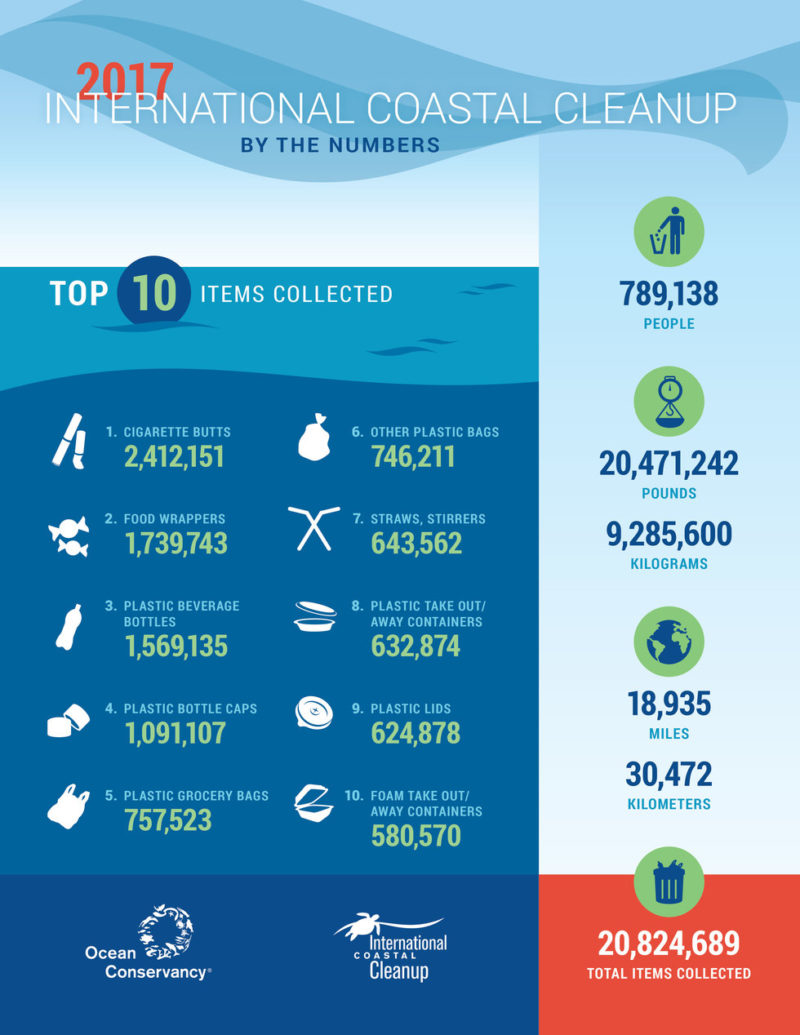
Plastic Pollution
The main reason why plastic straws are a problem is their enduring environmental footprint.
- Enduring pollution. Plastic straws are one of the most common types of litter found on beaches, yet they can’t be recycled. Instead they end up in landfills, as litter, or in waterways.
- Heavy Usage. It’s estimated that Americans use, on average, 1.6 straws per person per day. That translates into roughly 500 million disposable plastic straws every single day.
- Hazard to marine life. Marine animals mistake plastic straws for food. They can choke on them or straws can get stuck in animals’ nasal passages.
- Non-renewable ingredients. Plastic straws are made from polypropylene, a petroleum-based plastic. In effect, a non-renewable resource is used to create a single-use, disposable item.
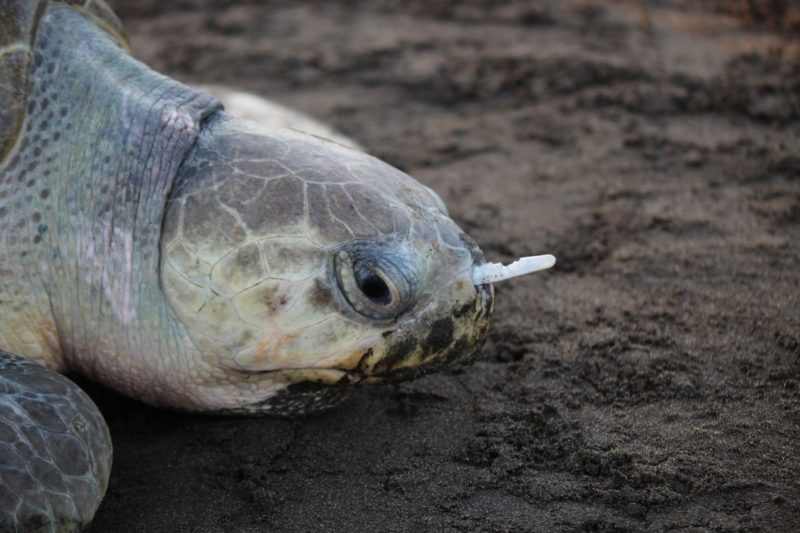
Health Issues
Other reasons why plastic straws are a problem? There are health-related issues:
- Chemical leaching. According to a recent study by Environmental Health Perspectives, research suggests that all plastics – including those advertised as BPA free – may leach chemicals if they’re scratched or heated. Another study shows evidence that the chemicals from polypropylene can leach into liquids and affect estrogen levels.
- Dental Issues. Using a straw to drink sugary beverages can concentrate the sugar to specific areas of the mouth, increasing the likelihood of cavities. Chewing on straws can also be bad for your teeth.
- They can cause wrinkles! Straw use causes people to purse their mouths and can create wrinkles from the repetitive muscle motion.
Why Pick on Straws?
Refusal is Easy And Effective
Refusing plastic straws is such a simple solution with a big impact. Will it solve the environmental crisis of single-use plastic pollution? No. But it will certainly make a significant dent.
Straws aren’t recyclable
Once you’ve used plastic straws, they can’t be reused. They either end up in a landfill or are incinerated. Or they end up polluting our environment and harming wildlife.
What about compostable or biodegradable straws? Can’t they be recycled? In most cases, no. These “green” alternatives aren’t really green at all and are a form of green-washing.
Are Straws Really Necessary?
Think about it: You choose to drink certain carbonated beverages, like sodas, with a straw, but wouldn’t consider drinking a beer, through a straw. However, the vast majority of restaurants automatically serve water and other beverages with a plastic straw. That straw is then tossed away after one brief use.
For most of us, straws are a convenience, not a necessity. Plastic straw usage has become a habit of convenience, and habits can be changed with the desire to change.
So unless you have health issues that require a straw, making a change is no cost to you! You can simply say no thanks and still enjoy that drink.
Lifestyle Changes
Understanding why plastic straws are a problem and making a conscious effort to make a change is probably the most difficult part of minimizing or eliminating straw usage.
Once you kick the habit, you may want to take a look around and do away with other convenience items that you rely on. Try these simple and affordable changes that can start you on your way.
What Can You Do?

Say “No Thanks” to (Plastic) Straws
Fortunately, there are solutions to this problem. Choosing not to use or purchase disposable straws is the most simple solution. In fact, The Plastic Pollution Coalition estimates that 1,800 “restaurants, organizations, institutions and schools worldwide have gotten rid of plastic straws or implemented a serve-straws-upon-request policy.”
Spread the Word
On a Personal Level. It may seem that your one voice doesn’t have an effect, but it does! Refusing plastic straws while you’re out with friends and family may initially subject you to some teasing. But the more you do it and talk – in a positive way – about how simple it is to say no, the more you’ll find people listening.
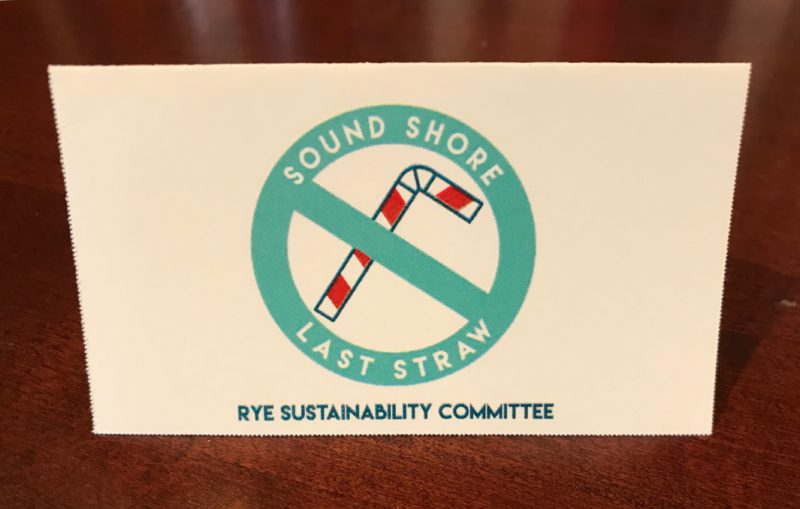 On a Community Level. A few years ago the group I chaired, Rye Sustainability Committee, started a plastic straw reduction campaign called Sound Shore Last Straw (SSLS). By asking residents and food establishments to make a pledge to refuse plastic straws, the goal is to reduce plastic straw consumption in our town.
On a Community Level. A few years ago the group I chaired, Rye Sustainability Committee, started a plastic straw reduction campaign called Sound Shore Last Straw (SSLS). By asking residents and food establishments to make a pledge to refuse plastic straws, the goal is to reduce plastic straw consumption in our town.
SSLS has been a very successful and positive campaign designed to reduce plastic straw usage by explaining why plastic straws are a problem. The campaign also focuses on the broader issue of raising awareness about the environmental effects of single-use plastics.
Do Some Cleanup
If you live in a coastal community, consider organizing a beach cleanup. Organizing local schools, civic organizations, and residents is an easy and effective way to help reduce plastic waste. It’s also a great way to get outdoors!
Host a Film Screening About Straw Pollution
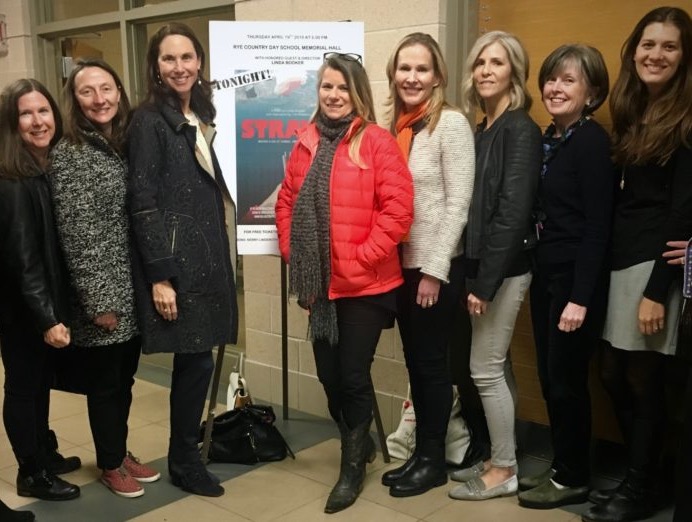
Rye Sustainability and a local school, Rye Country Day, hosted a film screening of STRAWS, an award-winning documentary about the negative impact of straws and other single-use plastics that inundate our waterways. The screening was an effective way to convey the message to a wide audience.
Advocate for Legislation to Restrict Plastic Straw Usage
Sometimes education and raising awareness about plastic straw pollution isn’t enough and legislation is necessary to change people’s behavior. I’ve devoted an entire post to plastic straw bans and legislative restrictions. Read more here about whether they work.
Alternatives to Plastic Straws
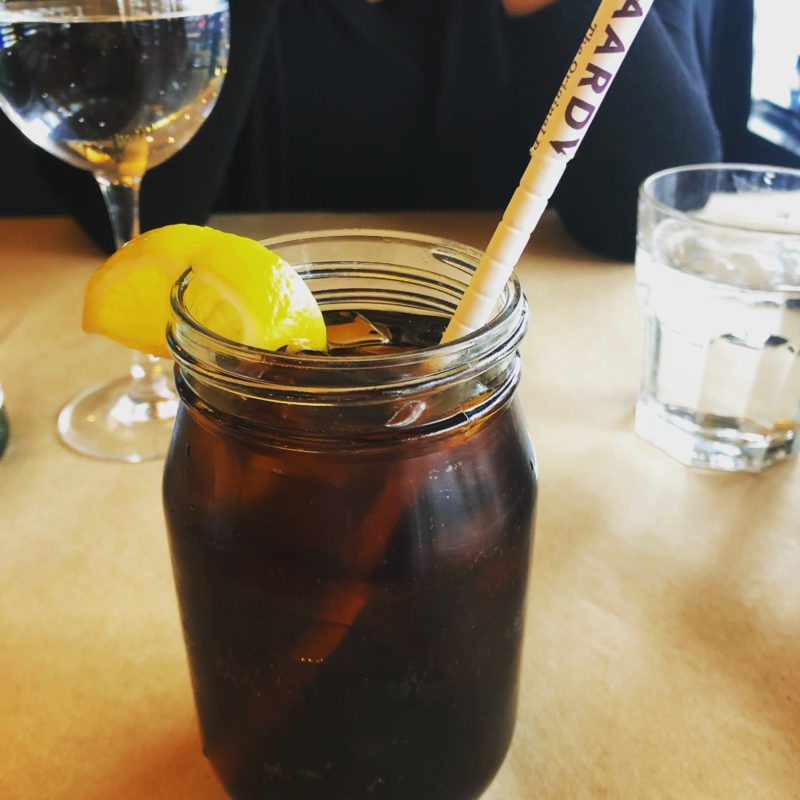
Want to use a straw or need to use one? Fortunately there are a wide variety of reusable and environmentally safe alternatives, including paper, glass, metal, and even some made from avocado seeds! Try a few styles to see which you like.

